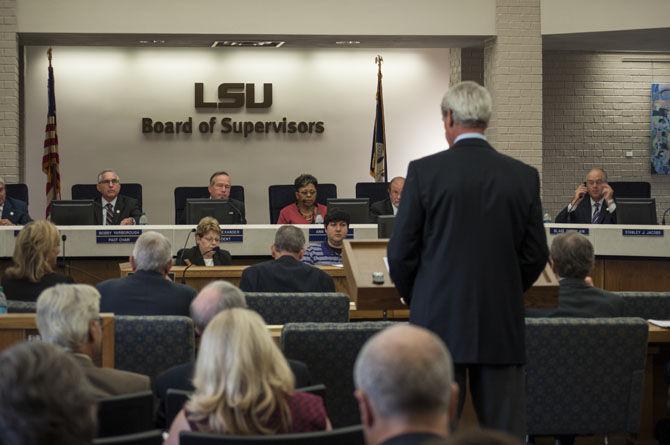The University will soon be changing how it processes and allocates funds for scholarships and financial aid, after the LSU Board of Supervisors approved the request from top University officials in a board meeting on March 20.
LSU Executive Vice President and Provost Stacia Haynie said the request was made in order for the University to continue to competitively recruit diverse, quality students. TOPS will not be affected by the changes.
“In the past, if we wanted to change a particular scholarship band, we would have to designate what that would be, then get it on the board agenda, then get it passed by the board, then awarded,” Haynie said. “By that point, our competitors may have moved two different times by then so now what we proposed is actually not what will keep us competitive.
The language in the actual agenda item is broad and does not mention any specific processes or changes that the University will adopt for financial aid. However, it does make clear that each year the University will provide the board with a report on how effective recruitment was for that year, and that qualified Louisiana students’ chances of acceptance to the University will not be negatively affected.
Haynie said the language was purposefully left vague so the University’s competitors would not be able to sabotage its new plans for improved recruitment.
The proposal also discusses how the University will address students who it deems to be at risk for continued enrollment.
“To support continuing students, data will be used to identify students at greatest risk for persisting,” the document states. “Financial assistance will be leveraged as appropriate and feasible to support continued enrollment and increase the likelihood of persistence towards graduation.”
This statement implies the University could introduce stricter performance standards for students to retain their financial aid. If implemented, these standards would conceivably give the University more funds from students with declining academic performance to offer to potential new recruits.
Haynie and Vice President for Enrollment Management Jose Aviles both said that one of the main goals of changing financial aid allocation is to improve the quality and diversity of University students.
With the Board’s approval, the University now has the capability and framework to realize that goal. Officials can sit down each year and use data to evaluate how successful it was at recruiting the most-desired students, whereas before they could not adequately do so, Aviles said.
“When I got here last year, we took a careful look at the scholarships that we were offering and just knew that we could use our money probably a little more strategically to make sure that we got the class that we wanted,” Aviles said.
LSU President F. King Alexander has tasked the Office of Academic Affairs with increasing the University’s total student body to 35,000 in the next five years, Haynie said. She added that the physical campus was assessed to be able to support 35,000 students and that officials want the growth to be incremental to retain the quality of students and services that the University offers.
Regardless of how the changes to financial aid allocation will affect current and future students, Haynie said keeping the University accessible and affordable is a high priority for Alexander and the board.
“For those students who have the academic credentials, we want to ensure that this is both an institution where they can find a home and that we can help them so that they leave here with relatively low to little debt,” Haynie said.
LSU administration requests more autonomy in allocating, processing financial aid
April 1, 2019
LSU Board of Supervisors met on Friday, Sept. 18, 2015, to discuss higher education funding for the school year.
More to Discover








